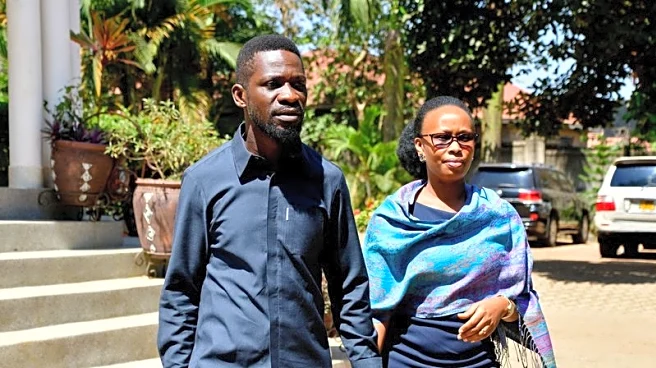Rapid Read • 8 min read
The Office of Management and Budget (OMB) is a pivotal agency within the Executive Office of the President, tasked with implementing the president's vision across the federal government. The OMB's responsibilities include preparing the federal budget, overseeing its execution, and managing agency performance. It also coordinates draft agency regulations and executive orders, ensuring consistency with administration policies. The director of the OMB, a Senate-confirmed position, serves both as a member of the president's Cabinet and as a senior White House staffer, advising on domestic, economic, and national security matters. The OMB employs approximately 500 staff, most of whom are civil servants, and plays a critical role in turning presidential ideas into actionable policies.
AD
The OMB's role is crucial in shaping federal policy and ensuring the efficient operation of government programs. By overseeing budgetary matters and regulatory processes, the OMB helps align agency actions with presidential priorities, impacting areas such as economic recovery, healthcare, and national security. The agency's ability to coordinate across multiple government sectors makes it a central player in policy implementation, affecting how resources are allocated and how regulations are enforced. This influence extends to legislative proposals and executive orders, making the OMB a key driver in the administration's policy agenda.
The OMB faces challenges in coordinating the vast operations of the federal government, especially in balancing competing interests among agencies. The director may need to navigate tensions with Congress and civil servants, particularly if controversial policies are pursued. The agency's focus on fiscal policy will be critical as the national debt continues to rise, and discussions around tax cuts and spending priorities unfold. The OMB's leadership will be essential in managing these dynamics and ensuring that the president's priorities are effectively implemented.
The OMB's influence extends beyond immediate policy implementation, affecting long-term government efficiency and accountability. Its role in regulatory review and budget management can lead to significant shifts in how federal programs are structured and funded. The agency's work in improving customer experience for government services highlights its commitment to enhancing public interaction with federal operations. As the OMB continues to evolve, its impact on government transparency and effectiveness remains a critical aspect of its mission.
AD
More Stories You Might Enjoy











